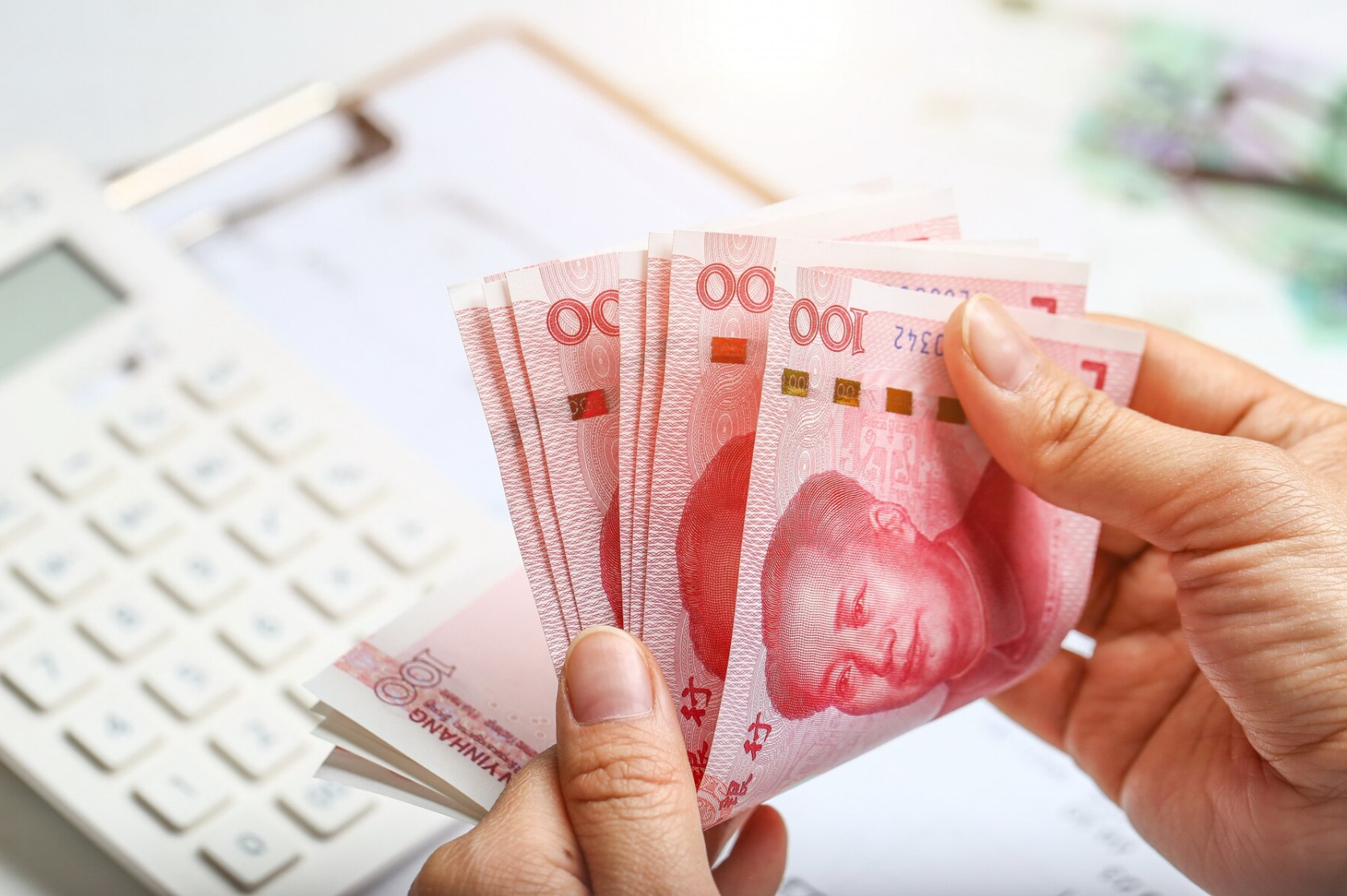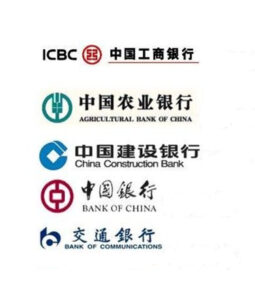Contents
As globalization continues to deepen, an increasing number of foreigners choose to work, study, or live in China. In this context, the ability to conveniently open a bank account in China becomes especially important. Whether it’s for daily expenses, a local bank account greatly simplifies life in China. However, for many newcomers, figuring out how to open a bank account in China can often be a headache. The varying requirements of different banks, cumbersome procedures, and language barriers can all pose challenges. Therefore, this article aims to provide an up-to-date, detailed guide to help foreigners smoothly open a bank account in China.
Bank Account in China
To open a bank account in China, foreigners need to meet the following requirements: possess a valid passport as the primary document for identity verification, have a residence visa proving their legal stay in China, and a Chinese mobile phone number, which most banks use for verification and communication purposes.
It’s important to note that if a foreigner’s visa to China has less than 6 months of validity, many Chinese banks may not accept their application to open an account. This is because banks need to ensure that customers have a sufficiently long stay in China to conduct regular banking operations and to comply with relevant regulatory requirements.
In some cases, banks may also require a taxpayer identification number, such as the Social Security Number (SSN) for U.S. citizens and legal residents, or the Social Insurance Number (SIN) for Canadians. These identification numbers help banks further verify the identity of customers, especially in transactions involving cross-border transactions and anti-money laundering regulations.
Foreigners from countries and regions considered high-risk may face additional scrutiny or, in some cases, be denied the ability to open an account. This is because banks need to ensure compliance with international and mainland China’s anti-money laundering and anti-terrorism financing regulations.
Chinese banks will carefully verify all documents submitted by applicants to ensure their authenticity, validity, and compliance. If necessary, applicants may be required to provide additional proof documents.
Furthermore, some banks may not accept applications from foreigners who are opening an account for the first time and are between the ages of 18 and 65. This age-related consideration can vary from bank to bank and should be verified directly with the institution.
Required Documents for Foreigners Opening a Bank Account in China
Opening a bank account in China requires foreigners to provide a comprehensive set of documents to prove their identity, legal status, and residence. Here are the essential documents you’ll need:
- Chinese Visa: Banks will verify the passport and validity of your visa.
- Temporary or Permanent Residence Permit: Depending on the bank you choose, you may need to show either a temporary or permanent residence permit.
- Proof of Employment or Study: This includes a letter from your employer or educational institution, along with relevant documents such as an employment contract or admission letter.
- Proof of Address: This could be a rental agreement, residence permit, or a temporary accommodation registration form issued by the Chinese Public Security Bureau.
- Contact Telephone Number: Your Chinese mobile phone number is crucial for bank communications.
It’s also worth noting the major banking options available to foreigners in China, which include the “Big Five” Chinese banks: Bank of China, Industrial and Commercial Bank of China, Agricultural Bank of China, Bank of Communications, and China Construction Bank. Additionally, there are major “Big Five” foreign banks operating in China: HSBC, Citibank, Standard Chartered, Deutsche Bank, and Bank of East Asia. For more detailed information, you might be interested in our other article: “Top 10 Largest Banks in China“.
Different Types of Bank Accounts for Foreigners in China
There are numerous banks in China offering a variety of bank cards. Essentially, Chinese bank cards can be divided into debit cards and credit cards. Of course, the most commonly used bank account type by foreigners is the savings account. Such accounts are highly suitable for daily expenses, deposits, and receiving salaries. Moreover, electronic banking services (including online banking and mobile banking) also provide great convenience to account holders, enabling them to easily perform cross-border remittances, bill payments, and account management anytime and anywhere.
Debit cards in China are a common type of bank card that can be used for savings and electronic payments. Additionally, savings accounts are categorized into demand deposits and time deposits. Credit cards can be used for credit purchases and installment payments. You can choose the appropriate bank and card type according to your needs. Importantly, you can link your bank card with WeChat and Alipay, which are currently very convenient worldwide. This allows you to use your smartphone to pay for various goods and services at restaurants, shopping centers, or anywhere payment is needed. This model provides another convenient way for foreigners in China to make payments and transfers. By linking these platforms with bank accounts, users can enjoy a fast and secure electronic payment experience. Of course, this is when you realize the benefits of having and activating a Chinese mobile phone number.
Opening Bank Account Options for Foreigners in China
Understanding and selecting the appropriate type of bank account in China is crucial for foreigners living there. Different account types cater to a wide range of financial needs, from everyday payments to international trade, helping them manage their finances more efficiently and enjoy convenient digital payment services.
Savings Account:
This is a fundamental account for individuals looking to store their money securely while earning a modest amount of interest. It offers the convenience of easy access to funds, making it perfect for daily expenses and short-term savings.
Current Account (Checking Account):
Designed for those with frequent banking transactions, this account type provides the flexibility of unlimited withdrawals and deposits. It typically comes with a cheque book and a debit card, facilitating various financial operations without cash.
Foreign Currency Account:
Specifically beneficial for individuals and businesses engaged in international trade, this account type allows for holding and conducting transactions in multiple currencies. It’s an invaluable tool for managing exchange rate fluctuations and simplifying cross-border financial activities.
Fixed Deposit Account (Time Deposit Account):
Targeted at savers looking for higher interest returns on their investments, this account requires funds to be locked in for a predetermined period. It’s an excellent option for long-term savings goals, as it offers higher interest rates compared to regular savings accounts.
This comprehensive approach outlines the steps involved in opening a bank account in China, ensuring a smooth and efficient process for foreigners.
How Foreigners Can Remit Money Abroad from Chinese Bank Accounts
Once you have successfully opened your personal bank account in China and need to make a payment overseas, you will be required to fill out an English remittance application form. The specific details needed for the remittance include:
- Remittance Amount and Currency: Specify the amount you wish to send and in what currency.
- Recipient’s Name and Address: The full name and address of the person receiving the money.
- Recipient’s Account Number: The bank account number of the recipient.
- Recipient’s Bank Name, SWIFT Code, or Address: These details are crucial for international wire transfers as they identify the recipient’s bank internationally.
When remitting money abroad, it’s essential to provide accurate and complete information to ensure the funds are correctly and promptly transferred. International remittances from China require adherence to the country’s foreign exchange regulations, and the transaction may be subject to certain limits and requirements. It’s advisable to consult with your bank in China to understand the detailed process, any fees involved, and how to comply with regulatory requirements. This preparation can help you navigate the complexities of international remittances and avoid potential delays or complications.
Guidelines for International Bank Transfers from China
For foreigners living in China, understanding how to conduct international transfers is crucial. Whether sending money to a Chinese bank account from abroad or remitting funds from China to an overseas account, there are specific processes and considerations to follow.
Sending Money to China: A Guide for Foreigners
- Choose the Right Remittance Service: You can opt for bank wire transfers, online payment services, or specialized remittance companies. Each method varies in fees and transfer time.
- Provide Recipient Information: Accurately provide the recipient’s name, bank account details, bank name, and its SWIFT code.
- Understand Transfer Limits and Fees: Different remittance services have varied limits and fee structures. Knowing these can help you choose the most cost-effective method.
- Consider Exchange Rate Impact: Take into account how exchange rate fluctuations affect the transferred amount, possibly timing your transfer when rates are favorable.
Remitting Money Overseas from China: Step-by-Step for Foreigners
- Fill Out a Wire Transfer Application Form: International wire transfers from Chinese banks typically require completing a detailed application form in English.
- Prepare Necessary Documentation: According to China’s foreign exchange regulations, international transfers may necessitate providing proof of identity and the reason for the remittance.
- Be Aware of Foreign Exchange Controls: China’s strict foreign exchange regulations make understanding these rules essential for smoothly completing a transfer.
- Know the Transfer Time and Fees: International transfers can take several business days to process and involve certain fees. Inquiring with your bank about these details can help you plan better.
Whether sending money to China from abroad or making remittances from China to overseas, it’s important to stay informed about local and international financial regulations to ensure every transaction complies with legal requirements, while also selecting the most suitable and cost-effective remittance method.
Conclusion
GWBMA stands as a professional agent in China, specializing in assisting foreigners with the establishment of Wholly Foreign-Owned Enterprises (WFOEs). Beyond just helping with company setup, GWBMA also extends its services to assist you in setting up bank accounts, ensuring that all your financial arrangements are seamlessly addressed before your company even begins its operations. Our goal is to provide a comprehensive solution to your needs, allowing you to focus on the core aspects of your business without the hassle of navigating the complexities of company and bank account establishment in a foreign country. With GWBMA, you can anticipate a smooth start, fully equipped to tackle the challenges of the Chinese market with confidence and ease.





